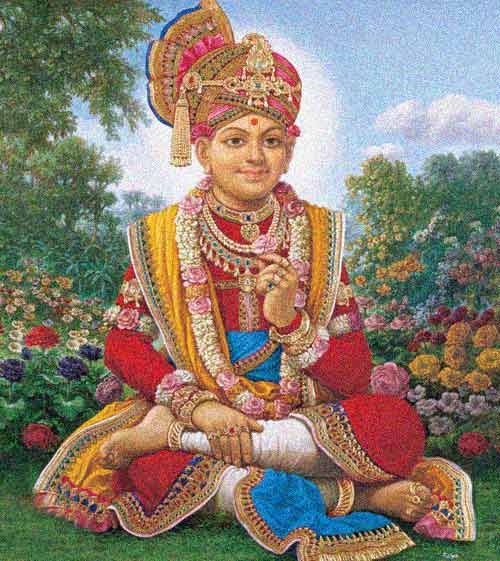1. Symbolism: The Importance of Devotion and Good Company
In Hinduism, wisdom (jnana) and learning are highly revered, but they are not seen as complete without devotion (bhakti) and right association (satsang). This balance is symbolized through various stories and teachings in the scriptures:
- The mind as a chariot: In the Katha Upanishad, the human body is compared to a chariot, the intellect to the charioteer, and the mind to the reins. The senses are the horses that pull this chariot, and without the guidance of devotion and good company, the mind, even if intelligent, can easily go astray.
- Bhagavad Gita: In the Gita, Lord Krishna constantly reminds Arjuna that knowledge alone is not sufficient for liberation. It must be accompanied by devotion to the Divine and a disciplined life. Without this spiritual anchor, even a learned person may fall prey to ego, greed, and immoral tendencies.
2. The Power of Satsang (Good Company)
Hindu scriptures emphasize the transformative power of good company:
- Satsang (association with spiritually inclined people) is seen as essential for moral and spiritual growth. The Bhagavata Purana states, “Satsangatve nissangatvam” (Through good company, one attains detachment), highlighting that being in the presence of wise and devout people can help one detach from worldly vices.
- Simple Story: Narada and the Hunter: In the story of Narada Muni and the cruel hunter, Narada’s association transforms the heart of the hunter from a violent man to a devotee of Lord Vishnu. This story illustrates how the company of a saint or spiritually inclined person can completely change one's life direction.
3. Quotes from Scriptures
- Bhagavad Gita (Chapter 2, Verse 63): “From anger, delusion arises, and from delusion, bewilderment of memory. When memory is bewildered, intelligence is lost, and when intelligence is lost, one falls down into the material pool.” This verse emphasizes that moral degradation begins when one loses control over emotions and forgets spiritual values.
- Mundaka Upanishad (1.2.12): "He who knows the Supreme Brahman becomes Brahman; no one ignorant of Brahman is ever liberated." Even profound knowledge is of no use unless it is directed toward realizing the Divine.
4. Modern-Day Relevance
In today's world, moral degradation and ethical dilemmas are common, especially in environments where success is often measured by wealth, status, and power. Knowledge alone, whether scientific or philosophical, is not enough to prevent moral decline. For instance, history is filled with examples of highly educated individuals who, in the absence of spiritual grounding, have fallen into unethical behavior.
- Workplace Integrity: In modern corporate settings, even skilled professionals can compromise their values under pressure or in the pursuit of success. A grounding in moral principles, often nurtured through spiritual practices and good company, is essential to maintain integrity.
- Mental Health: In the fast-paced modern world, stress, anxiety, and moral conflicts are common. Spiritual practices such as prayer, meditation, and being in the company of wise people provide mental clarity and ethical grounding, preventing individuals from straying into harmful habits or thoughts.
5. Practicality in Day-to-Day Life
In daily life, the teachings on devotion and good company can be applied through simple but powerful actions:
Daily Meditation or Prayer: A regular spiritual practice keeps the mind calm and connected to higher values, preventing moral lapses. It instills humility and reduces the ego's influence.
Choosing Right Company: Associating with people who are spiritually inclined or morally upright helps one stay focused on ethical behavior. Good friendships and company can influence thought patterns, reduce stress, and encourage positive habits.
Simple Story: The Saint and the Dog: Once, a saint was asked how he maintained his equanimity and purity despite the temptations around him. He pointed to a dog and said, "Just as the dog never leaves its master, so too do I never leave my devotion to God and my moral principles." The story symbolizes that unwavering devotion can help one overcome external challenges and temptations.
6. Additional Thoughts: The Balancing of Knowledge and Devotion
Knowledge can sometimes inflate the ego if not tempered with humility and devotion. Devotion to God (bhakti) reminds even the learned that they are part of a larger cosmic order and not the sole architects of their lives. Humility is an essential aspect of moral living, and devotion helps cultivate that humility by acknowledging a higher power.
- Swami Vivekananda: He often said that true knowledge leads to service, humility, and devotion. Intellectual growth without moral development is incomplete and potentially dangerous.
- Sri Ramakrishna: "Knowledge and devotion are like the two wings of a bird; both are necessary for one to rise to the heights of spirituality." This highlights the importance of balancing intellectual pursuits with heart-centered devotion.
